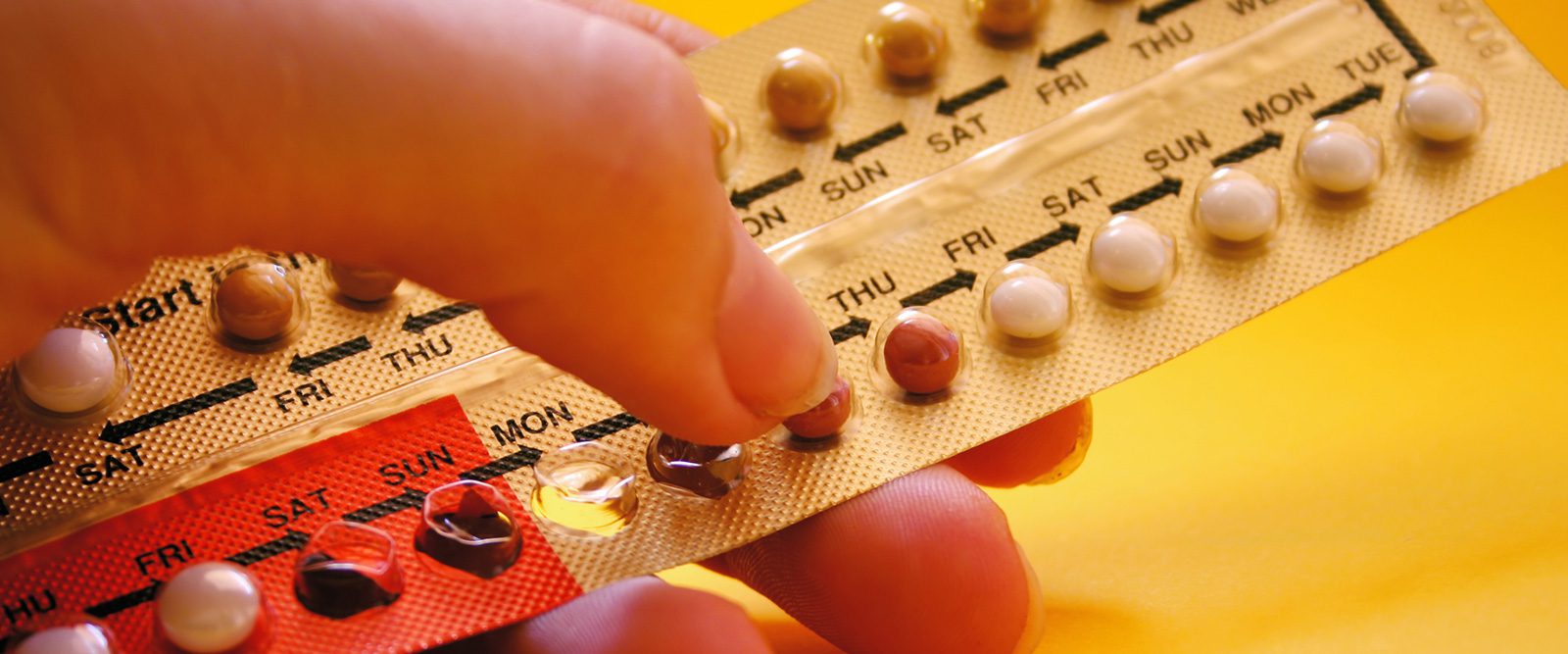Do Women Who Have Been on Birth Control for a Long Time Need to Take a Break From It?
An OB-GYN explains the facts and myths about hormonal birth control and why it’s safe to stay on longterm.


Hormonal birth control is an effective way to prevent pregnancy and can also be used to help address certain symptoms, such as painful menstrual cramps, and conditions, including polycystic ovary syndrome (PCOS). But those who have been on birth control for many years may wonder about the longterm impact on their reproductive and overall health — and if they should give their body a break from hormonal birth control.
“I’ve been in practice for 20 years, and I’m being asked this question more and more recently,” Dr. Hoosna Haque, an obstetrician-gynecologist at NewYork-Presbyterian/Columbia University Irving Medical Center.
While everyone’s body is different, and the need for contraception is an individual decision, Dr. Haque says there is no medical reason to take a break from hormonal contraception if you are doing well on it without significant side effects or any complications. “I’d like people to know that contraception is very safe,” she says.
Health Matters spoke to Dr. Haque about understanding hormonal birth control, the health benefits and risks, and common misconceptions.

Dr. Hoosna Haque
How does hormonal birth control work?
Dr. Haque: Hormonal birth control — like the pill, the patch, the ring, contraceptive implant, and hormonal IUD’s — usually contains a combination of estrogen and progesterone or progesterone-only. These types of contraceptives work by blocking the release of eggs from the ovaries, thinning the lining of the uterus, or thickening the mucus in the cervix to help keep sperm from reaching the egg.
Hormonal birth control can be used for a variety of medical purposes, such as PCOS, a hormonal imbalance, and a condition called Hirsutism which causes excess body and facial hair, as well as for contraception.
It’s also used for patients with painful periods. By thinning the uterine lining, they reduce the production of the prostaglandin, the hormone responsible for spasms in the uterine muscle. Hormonal contraception – including the pill, patch, and ring – can reduce the pain and cramping with periods by about 50%, and the hormonal IUD by about 90%.
If someone has been on birth control for many years, are there valid health reasons that they should stop using it?
Overall, the answer is no. There’s no medical need to stop or take a break from taking hormonal birth control if all is going well on them.
However, there are special circumstances when people might want to take a break from their hormonal contraception to see if their menstrual cycles are regular or not. The presence and timing of menses is considered a vital sign giving information about overall health and energy balance. For example, irregular menstrual cycles may affect an individual who is an extreme athlete, has an eating disorder, is under extreme stress, or getting certain medical treatment like chemotherapy.
But certain hormonal birth control can actually have positive health effects. Some forms can reduce the risk of ovarian cancer and endometrial cancer. Birth control can also help with certain symptoms of PMS, like moodiness or bloating, by balancing out hormone levels. Sometimes combined estrogen and progesterone contraception is used to treat hormonal acne. Since it reduces testosterone from the ovaries, people may experience clearer skin. For some, the decreased testosterone may lower their libido a bit, but others experience a libido boost because they’re not anxious about pregnancy.
Is it true that staying on birth control for long periods of time may affect fertility?
No, hormonal birth control can mostly be continued safely until one is ready for pregnancy or no longer needs it for contraception without impacting future fertility.
In some ways, birth control might help to preserve fertility. For example, some forms of birth control, like the hormonal IUD or progesterone methods, can be protective against pelvic inflammatory disease, a condition that can make getting pregnant harder and lead to infertility because of scarring in the fallopian tubes, making it difficult for sperm to reach the egg.
One of the concerns I hear is: ‘I’m worried that the hormones are going to build up in my body, so that when I do try to get pregnant, it’s going to take longer.’
In reality, the medication stays in your body for a short period of time, only about 24 hours – that’s why you have to take it every day. Hormonal medication is mostly out of your system within a few days of stopping or removing it, with a quick return to fertility.
One exception to that rule is Depo-Provera, a contraceptive injection. It’s an effective form of contraception, but it can delay the return to regular menstrual cycles for 9 or rarely 18 months, a lot longer than the other forms of contraception. For people who are planning pregnancy in the next one to two years, that may be one to stay away from.
Are there any side effects that might occur when coming off birth control and then going back on?
In the first few months after going off birth control, you may see some irregularities in your menstrual cycle — that just has to do with the short-term effects on the lining of the uterus. After two or three months, the cycle should regulate. If someone was taking it for a medical reason, like painful periods or acne, those symptoms may return. Sometimes people notice their hair thinning or falling out because estrogen has a pro-growth effect, but it is not permanent.
If for some reason, a menstrual cycle does not come back after three to six months, you might want to get that evaluated to see if there’s any underlying issue. It wouldn’t necessarily be the contraceptive that would make them irregular.
When you re-start any type of hormonal contraception, the three most common things that people experience are: changes in their menstrual cycle such as irregular spotting, a bit of nausea, and breast tenderness. All three tend to stabilize after the first three months or so.
Are there any health conditions that would make it ill-advised for someone to take hormonal birth control?
Yes, patients who have a history of migraines with aura (sensory symptoms), deep vein thrombosis, pulmonary embolism, uncontrolled hypertension, or have risk factors for heart disease or stroke are usually not advised to take contraception containing estrogen. Similarly, people who smoke and are over the age of 35 are higher risk for complications, including blood clots. When patients are on birth control with estrogen, we want to watch that it does not significantly elevate their blood pressure. There are progesterone-only choices which can be options in those situations.
There’s usually a way to find a form of birth control for almost everyone, whether it’s hormonal or non-hormonal. Contraception should be safe, effective, and meet your individual needs.

